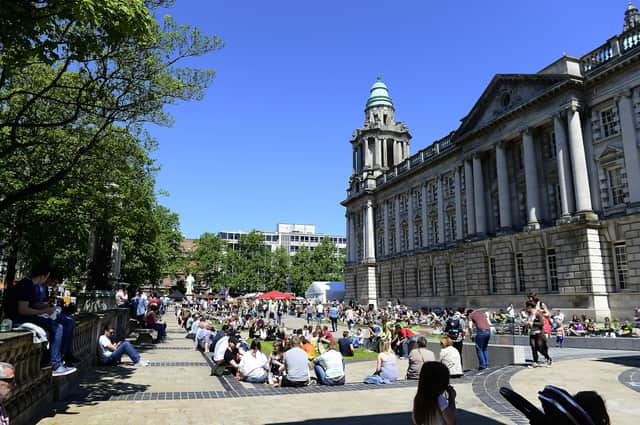Green light for City Hall statues of United Irishwoman and republican, and plaque for Edward Carson


At the council’s full meeting on Tuesday, councillors unanimously agreed to an Alliance motion to erect a statue for United Irishwoman Mary Ann McCracken, as well as recommendations from a 2012 independent Equality Impact Assessment to approve a statue for the republican Winifred Carney, and a plaque commemorating Sir Edward Carson and the signing of the Ulster Covenant.
The agreement starts the process of costing and design for the statues and plaque, with further equality screening to be used if deemed necessary, and the final plan to be brought before the council.
Advertisement
Hide AdAdvertisement
Hide AdThe council has also agreed to establish a working group to consider and agree commissions for future installations at City Hall.
Decisions have already been taken supporting the installation of two stained glass windows representing the LGBT community and the NHS.
A council report refers to “the need to achieve a greater level of balance in terms of the persons who are depicted or represented within the grounds” of City Hall.
It states: “One such figure promoted as being a person of significant historical importance, viewed by many as worthy of being commemorated, is Winifred Carney.
Advertisement
Hide AdAdvertisement
Hide Ad“In the context of the EQIA and not in any way to undermine her historical importance, Winifred Carney goes some way to providing the balance that the EQIA recommends.”
Councillor Ciaran Beattie thanked all the other parties during the council, and said it was “a long road” to resolution of the installation issue.
He added: “Belfast is a diverse city and it is crucial that steps like today are taken to make it inclusive and representative of all citizens of our city.
“An Equality Impact Assessment in 2012 clearly demonstrated that those depicted or commemorated in statues in the grounds of Belfast City Hall are predominantly from a white, male, unionist background.”
Advertisement
Hide AdAdvertisement
Hide AdDUP Alderman Brian Kingston told the council: “As we move forward with this process, we will be hoping to capture the complexity of people’s lives, and not present them in a one-dimensional manner.”
Alderman Kingston suggested installing in the grounds of the City Hall a statue of Isabella Tod, the suffragist, social reformer and activist for the poor and women’s rights who helped secure the admission of women to Queen’s University.
Winifred Carney (1887-1943) a suffragist, trade unionist, and Irish independence activist, was born in Bangor, raised on the Falls Road, and was in charge of the women’s section of the Irish Workers Textile Union before becoming friend and personal secretary to James Connolly.
Together they worked to improve the conditions of factory women in Belfast, and later Carney joined Cumann Na mBan, the women’s auxiliary of the Irish Volunteers. She was present with Connolly in the Dublin General Post Office during the Easter Rising in 1916.
Advertisement
Hide AdAdvertisement
Hide AdShe stood for parliament as a Sinn Fein candidate for Belfast Victoria the 1918 general election and later was in the Labour Party and the Belfast Socialist Party. In 1928 she married George McBride, a Protestant orangeman, socialist, and former member of the Ulster Volunteers.
Mary Ann McCracken, Belfast born business woman, social reformer, anti-slaver, and supporter of the United Irishmen, who lived from 1770 to 1866, was born into a liberal presbyterian family of Scottish and French Huguenot heritage.
She managed a successful muslin business in Belfast, led the Women’s Abolitionary Committee in Belfast during the height of the anti slavery movement, formed the Ladies Committee of the Belfast Charitable Movement, and was dedicated to the poor of the city from her youth.
She maintained a strong interest in Irish traditions of oral music, and was a founding member of the Belfast Harp Society
She was the sister of Henry Joy McCracken, a founder of the United Irishmen Society, and took care of his daughter after his execution.